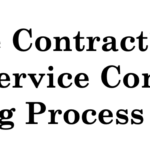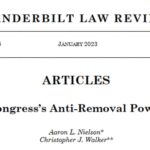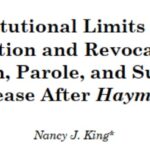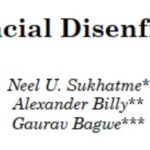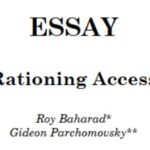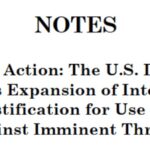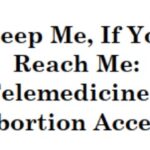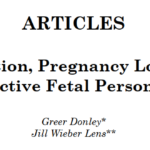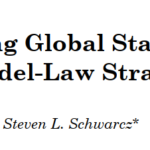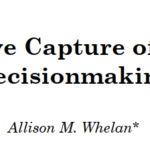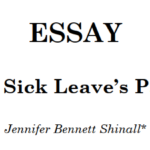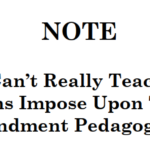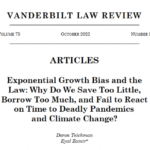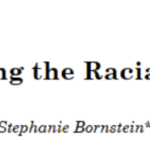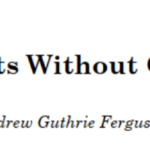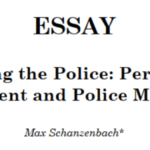Author
What’s in the Contract?: Rockefeller, the Hague Service Convention, and Serving Process Abroad
Mar. 28, 2023—Thomas G. Vanderbeek | 76 Vand. L. Rev. 643 Today’s global economy relies on transnational commerce. The Convention on the Service Abroad of Judicial and Extrajudicial Documents in Civil or Commercial Matters (“Hague Service Convention”), implemented in 1965, encouraged transnational commerce by establishing a streamlined mechanism for serving foreign parties with process. More reliable international...
Congress’s Anti-Removal Power
Jan. 27, 2023—Aaron L. Nielson & Christopher J. Walker | 76 Vand. L. Rev. 1 Statutory restrictions on presidential removal of agency leadership enable agencies to act independently from the White House. Yet since 2020, the U.S. Supreme Court has held two times that such restrictions are unconstitutional precisely because they prevent the President from controlling policymaking...
Constitutional Limits on the Imposition and Revocation of Probation, Parole, and Supervised Release After Haymond
Jan. 27, 2023—Nancy J. King | 76 Vand. L. Rev. 83 In its Apprendi line of cases, the Supreme Court has held that any fact found at sentencing (other than prior conviction) that aggravates the punishment range otherwise authorized by the conviction is an “element” that must be proved beyond a reasonable doubt to a jury. Whether...
Felony Financial Disenfranchisement
Jan. 27, 2023—Neel U. Sukhatme, Alexander Billy & Gaurav Bagwe | 76 Vand. L. Rev. 143 Individuals with prior felony convictions often must complete all terms of their sentence before they regain voter eligibility. Many jurisdictions include legal-financial obligations (“LFOs”)—fines, fees, and/or restitution stemming from convictions—in the terms of the sentence. Twenty-eight states, governing over 182 million...
Rationing Access
Jan. 27, 2023—Roy Baharad & Gideon Parchomovsky | 76 Vand. L. Rev. 215 Protection of common natural resources is one of the foremost challenges facing our society. Since Garrett Hardin published his immensely influential The Tragedy of the Commons, theorists have contemplated the best way to save common-pool resources—national parks, fisheries, heritage sites, and fragile ecosystems—from overuse...
After Action: The U.S. Drone Program’s Expansion of International Law Justification for Use of Force Against Imminent Threats
Jan. 27, 2023—Elodie O. Currier | 76 Vand. L. Rev. 259 Until the 2000s, the United States’ attempts to shift international legal norms on imminence to allow for greater use of armed force abroad were largely unsuccessful. In the past two decades, however, drone use and careful legal gamesmanship by U.S. officials have opened an unprecedentedly broad...
Call Me, Beep Me, If You Want to Reach Me: Utilizing Telemedicine to Expand Abortion Access
Jan. 27, 2023—Samantha A. Hunt | 76 Vand. L. Rev. 323 In June 2022, the Supreme Court handed down its decision in Dobbs v. Jackson Women’s Health Organization. The decision confirmed what the public already knew. An anonymously leaked draft version of what ultimately became Justice Samuel Alito’s majority opinion had braced the country for Dobbs’s key...
Abortion, Pregnancy Loss, & Subjective Fetal Personhood
Nov. 22, 2022—Greer Donley & Jill Wieber Lens | 75 Vand. L. Rev. 1649 Long-standing dogma dictates that recognizing pregnancy loss threatens abortion rights—acknowledging that miscarriage and stillbirth involve the loss of something valuable, the theory goes, creates a slippery slope to fetal personhood. For decades, antiabortion advocates have capitalized on this tension and weaponized the grief...
Regulating Global Stablecoins: A Model-Law Strategy
Nov. 22, 2022—Steven L. Schwarcz | 75 Vand. L. Rev. 1729 Digital currencies have the potential to improve the speed and efficiency of the payment system. The principal challenge is retail: to facilitate day-to-day payments among consumers as an alternative to cash, both domestically and across national borders. Two models of digital currencies are becoming viable: central...
Executive Capture of Agency Decisionmaking
Nov. 22, 2022—Allison M. Whelan | 75 Vand. L. Rev. 1787 The scientific credibility of the administrative state is under siege in the United States, risking distressful public health harms and even deaths. This Article addresses one component of this attack—executive interference in agency scientific decisionmaking. It offers a new conceptual framework, “internal agency capture,” and policy...
Paid Sick Leave’s Payoff
Nov. 22, 2022—Jennifer Bennett Shinall | 75 Vand. L. Rev. 1879 Perhaps paid sick days have never been more valuable than during the COVID-19 pandemic. Yet even before COVID-19, seventeen states and the District of Columbia began passing legislative mandates that employers provide employees with paid sick leave (“PSL”) days. Most of this legislation requires employers to...
Can’t Really Teach: CRT Bans Impose Upon Teachers’ First Amendment Pedagogical Rights
Nov. 22, 2022—Mary Lindsay Krebs | 75 Vand. L. Rev. 1925 The jurisprudence governing K-12 teachers’ speech protection has been a convoluted hodgepodge of caselaw since the 1960s when the Supreme Court established that teachers retain at least some First Amendment protection as public educators. Now, as new so-called Critical Race Theory bans prohibit an array of...
Exponential Growth Bias and the Law: Why Do We Save Too Little, Borrow Too Much, and Fail to React on Time to Deadly Pandemics and Climate Change?
Oct. 20, 2022—Doron Teichman & Eyal Zamir | 75 Vand. L. Rev. 1345 Many human decisions, ranging from the taking of loans with compound interest to fighting deadly pandemics, involve phenomena that entail exponential growth. Yet a wide and robust body of empirical studies demonstrates that people systematically underestimate exponential growth. This phenomenon, dubbed the exponential growth...
Confronting the Racial Pay Gap
Oct. 20, 2022—Stephanie Bornstein | 75 Vand. L. Rev. 1401 For several decades, a small body of legal scholarship has addressed the gender pay gap, which compares the median full-time earnings of women and men. More recently, legal scholars have begun to address the racial wealth gap, which measures racial disparities in family economic security and wealth...
Courts Without Court
Oct. 20, 2022—Andrew Guthrie Ferguson | 75 Vand. L. Rev. 1461 What role does the physical courthouse play in the administration of criminal justice? This Article uses recent experiments with virtual courts to reimagine a future without criminal courthouses at the center. The key insight of this Article is to reveal how integral physical courts are to...
Policing the Police: Personnel Management and Police Misconduct
Oct. 20, 2022—Max Schanzenbach | 75 Vand. L. Rev. 1523 Police misconduct is at the top of the public policy agenda, but there is surprisingly little understanding of how police personnel management policies affect police misconduct. Police-civilian interactions in large jurisdictions are, in principle at least, highly regulated. But these regulations are at least partially counteracted by...
